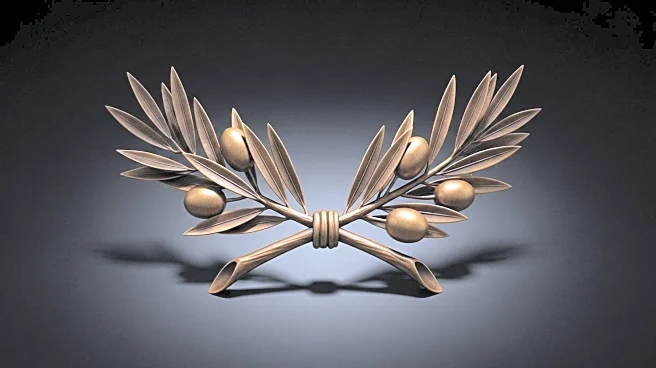What's Happening?
As China prepares to celebrate the 80th anniversary of Japan's surrender in World War II, a campaign is underway to recast wartime history, minimizing the role of the United States. State-aligned scholars and media have been downplaying American assistance during the war, portraying the U.S. as self-serving. This narrative is part of a broader effort to bolster nationalist sentiment amid current geopolitical tensions with Washington. The campaign includes films and AI-generated content that emphasize China's wartime contributions while diminishing U.S. involvement. Historians, however, assert that American aid was crucial for China's survival during the war.
Why It's Important?
This revisionist approach to history reflects China's strategic positioning in the current geopolitical landscape, where tensions with the U.S. are escalating. By reshaping historical narratives, China aims to strengthen national unity and assert its global standing. This move could further strain U.S.-China relations, as it challenges the historical cooperation between the two nations. The emphasis on nationalism also serves to rally domestic support for China's policies and counter perceived external threats, particularly from the U.S.
What's Next?
The ongoing narrative shift may lead to increased diplomatic tensions between China and the U.S., as both nations vie for influence on the global stage. The portrayal of historical events could impact future negotiations and collaborations, particularly in areas where historical cooperation has been a foundation. Observers will be watching how this narrative influences public opinion in China and its potential effects on international relations.











